Meet Botswana's Okavango Delta lions — one of the largest cats on Earth
Lions in Botswana's Okavango Delta are amongst the largest in the world thanks to an abundance of prey as well as the many rivers.
Lions by the car
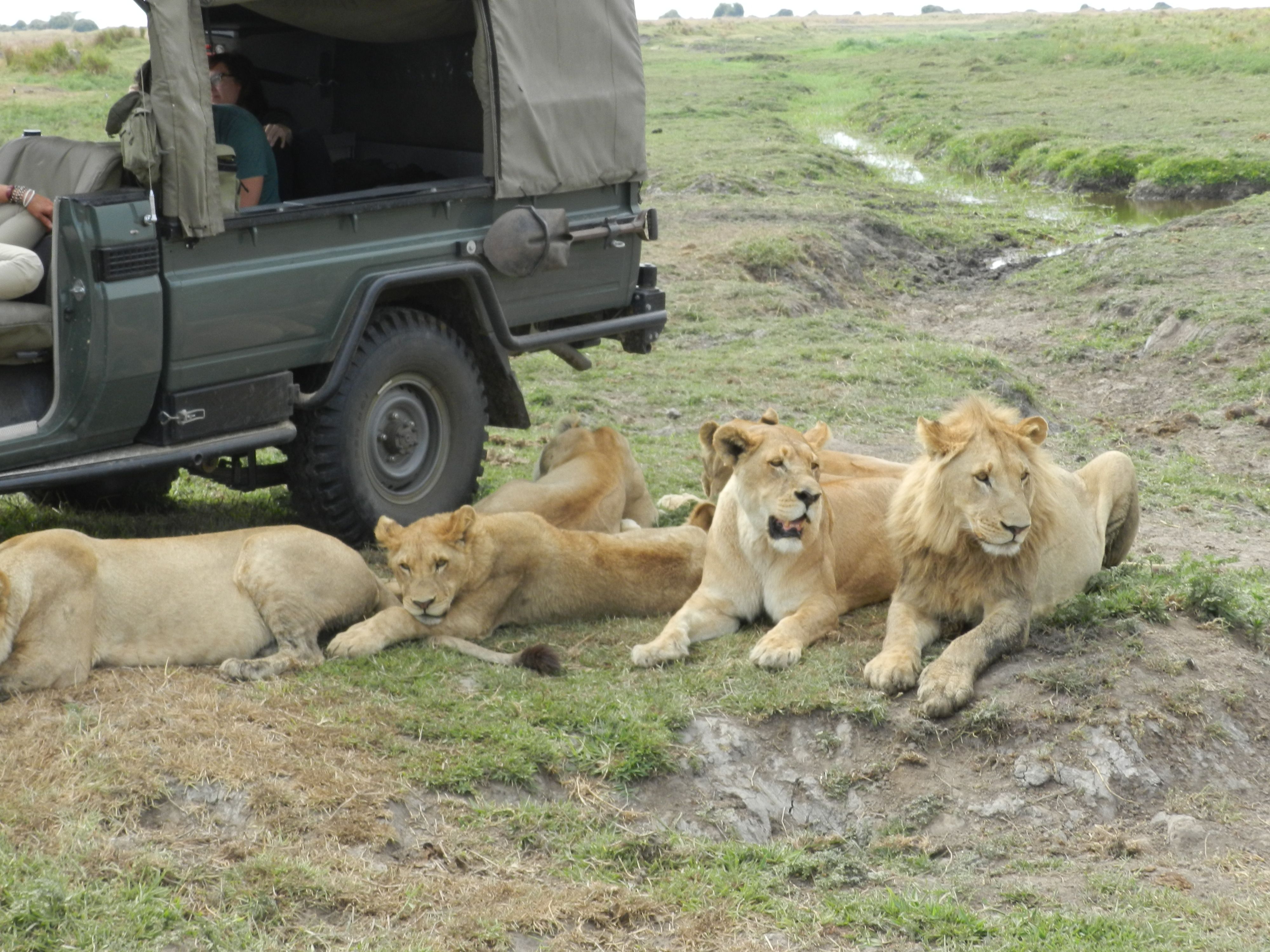
Male lions in the Okavango Delta, a lush wetland where the Okavango River collides with the Kalahari Desert, are the largest lions on Earth, said filmmaker Dereck Joubert.
Dereck and his wife, Beverly, both National Geographic explorers-in-residence, made a film about how these male lions survive, called "Game of Lions," which premiers Sunday (Dec. 1) at 10 p.m. ET on Nat Geo Wild.
Walking through water
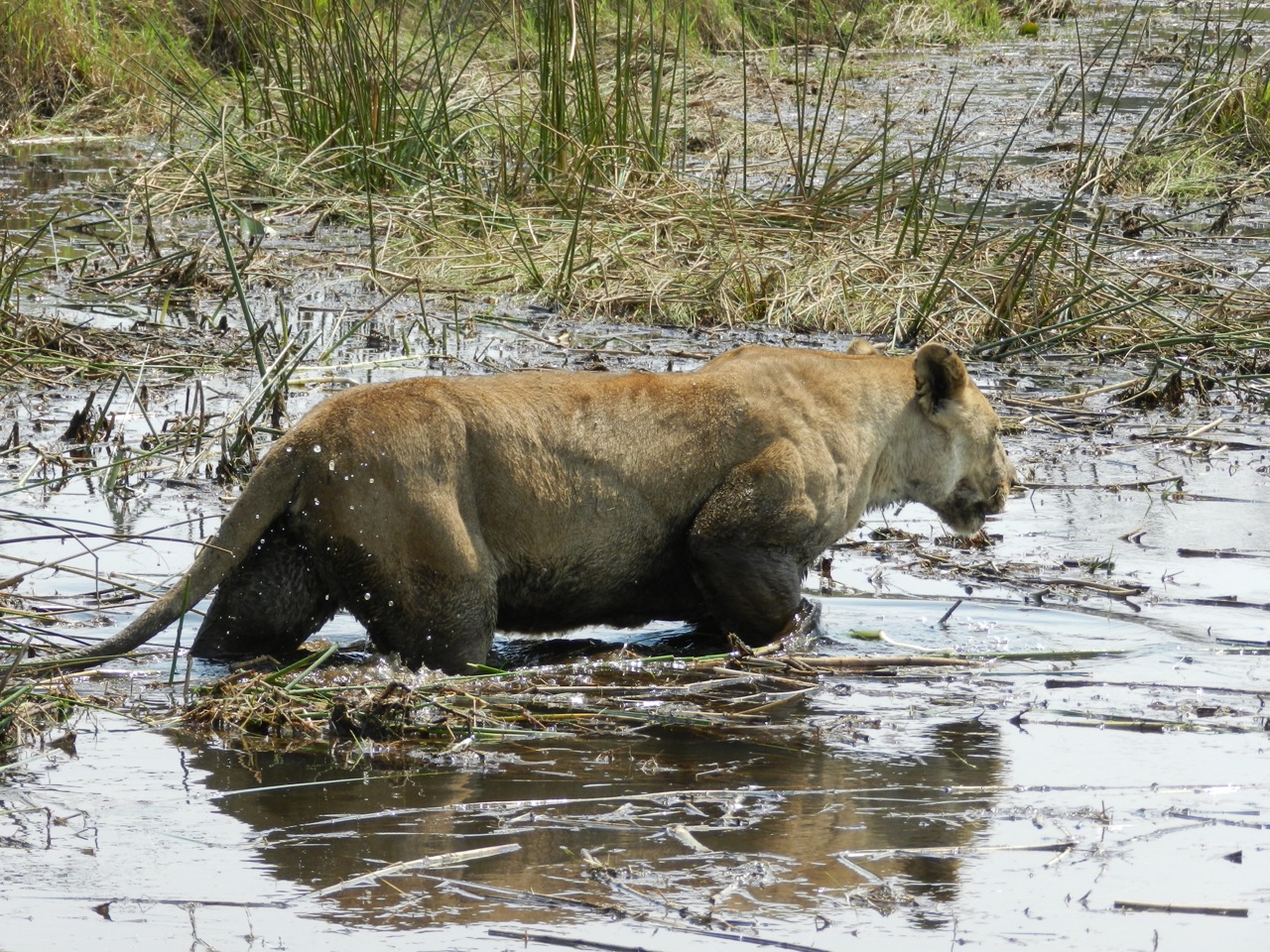
Lions in Botswana's Okavango Delta are probably the largest lions on the planet because there is an abundance of buffalo and other animals to prey upon in the region, and the fact that the animals often walk through water in the delta's many streams, building up their muscles, Dereck said.
This female lion, which just feasted upon a dead buffalo, is seen walking through one of the many streams of the Duba Plains camp, a wildlife concession in northwestern Botswana.
Related: What are the biggest cats in the world?
The Jouberts
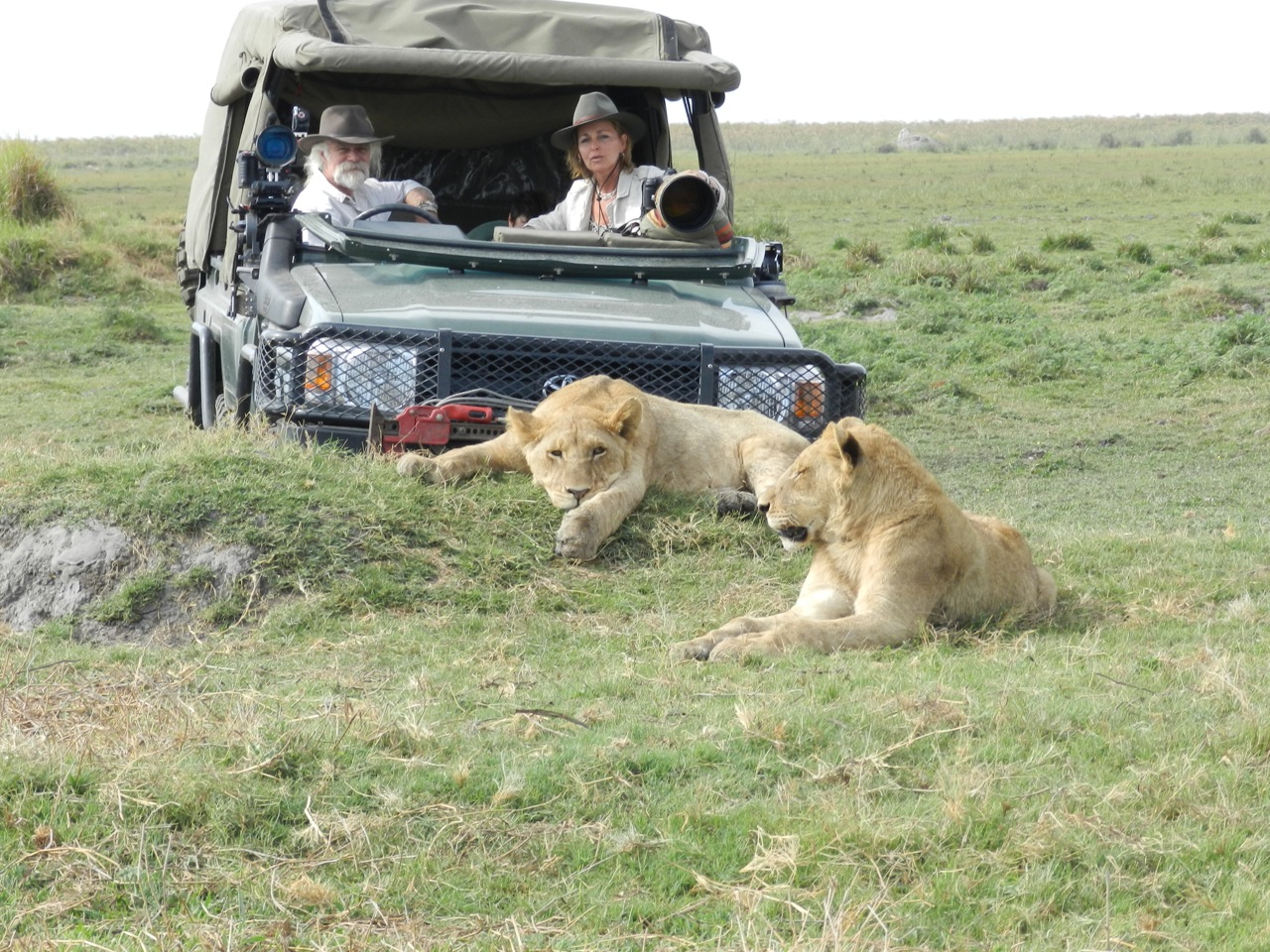
Dereck, 57, and Beverly, 56, seem to belong here in the bush of the Duba Plains camp, where they made other films about lions, including "The Last Lions" and "Relentless Enemies."
Not yet huge
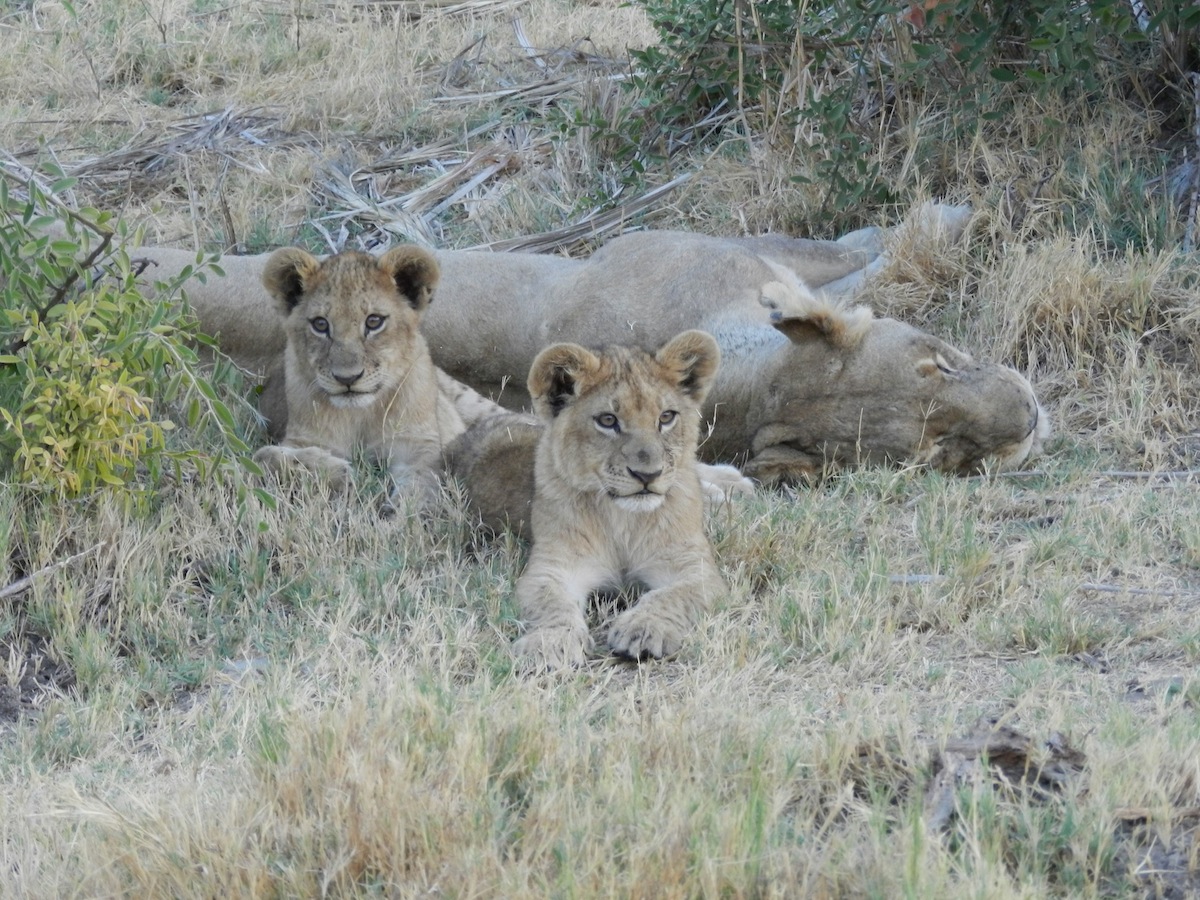
It's no easy feat finding lions. But under the guidance of the Jouberts and a guide, it's a cinch. On the first afternoon of a three-day safari in Duba, the couple located a group of five lions, including two cubs, as a group of four journalists drove to see them. Only about 1 in 8 male lions survive to adulthood.
Sign up for the Live Science daily newsletter now
Get the world’s most fascinating discoveries delivered straight to your inbox.
Getting ousted
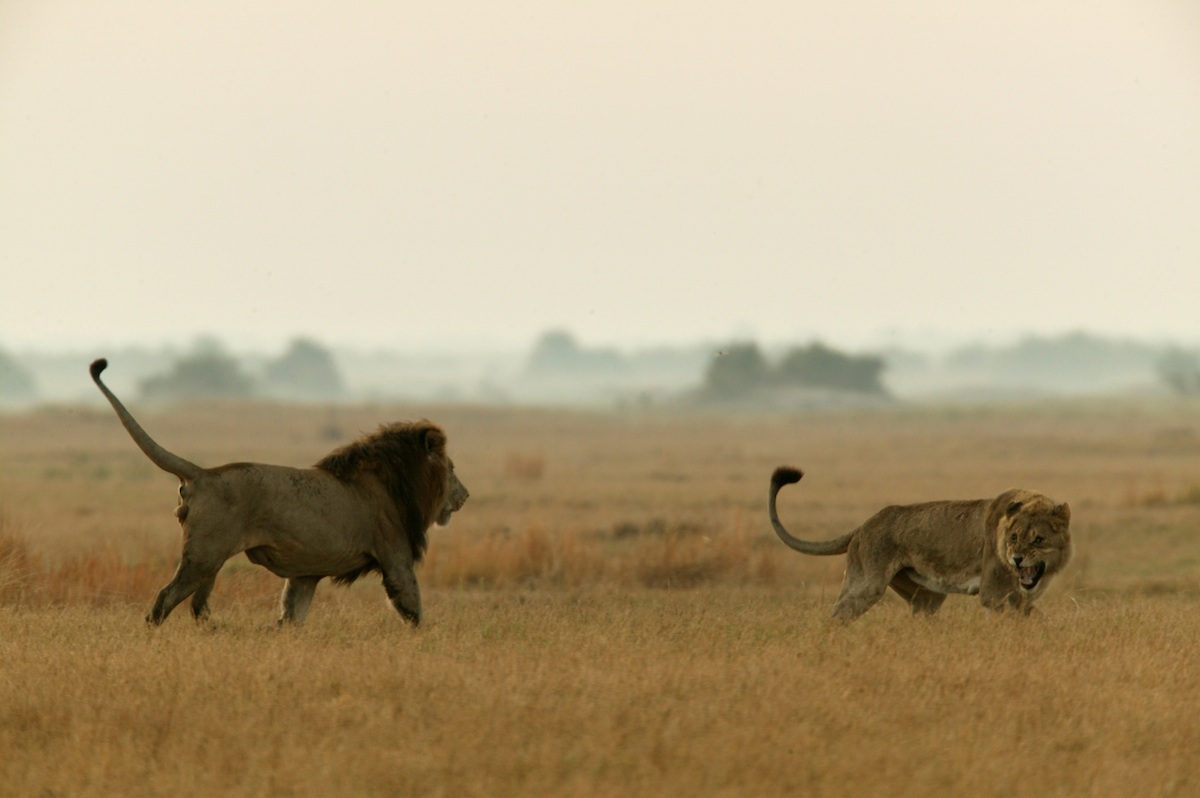
When male lions begin to reach sexual maturity around age 2, the older males within the pride kick them out, Dereck said. The female lions, which are usually all related to some degree, typically stay behind.
For a young male, "the betrayal by his own blood must be confusing to him, but this is an ancient rite — the casting out of young males into a world of unknowns — a world where he will be able make it, or die," said Dereck.
After being kicked out, the young males roam the countryside solo or in small bands, often with their brothers or cousins, negotiating the no-cat's-land between territories of other lions.
Chowing down
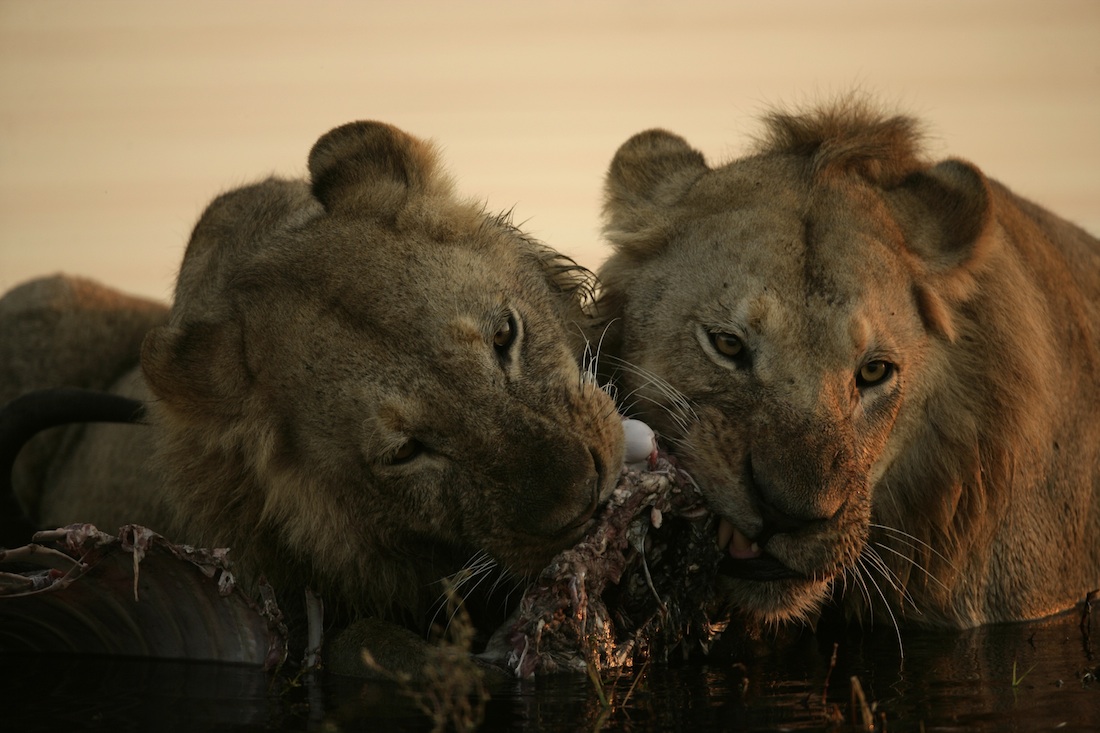
If lions survive long enough to find a promising new area, the next step is to take over another pride. But of course resident males will have none of that, and so they end up fighting, often to the death. They usually do this as a coalition, often consisting of three or four big males.
Related: What drove Tsavo lions to eat people? Century-old mystery solved
Up close
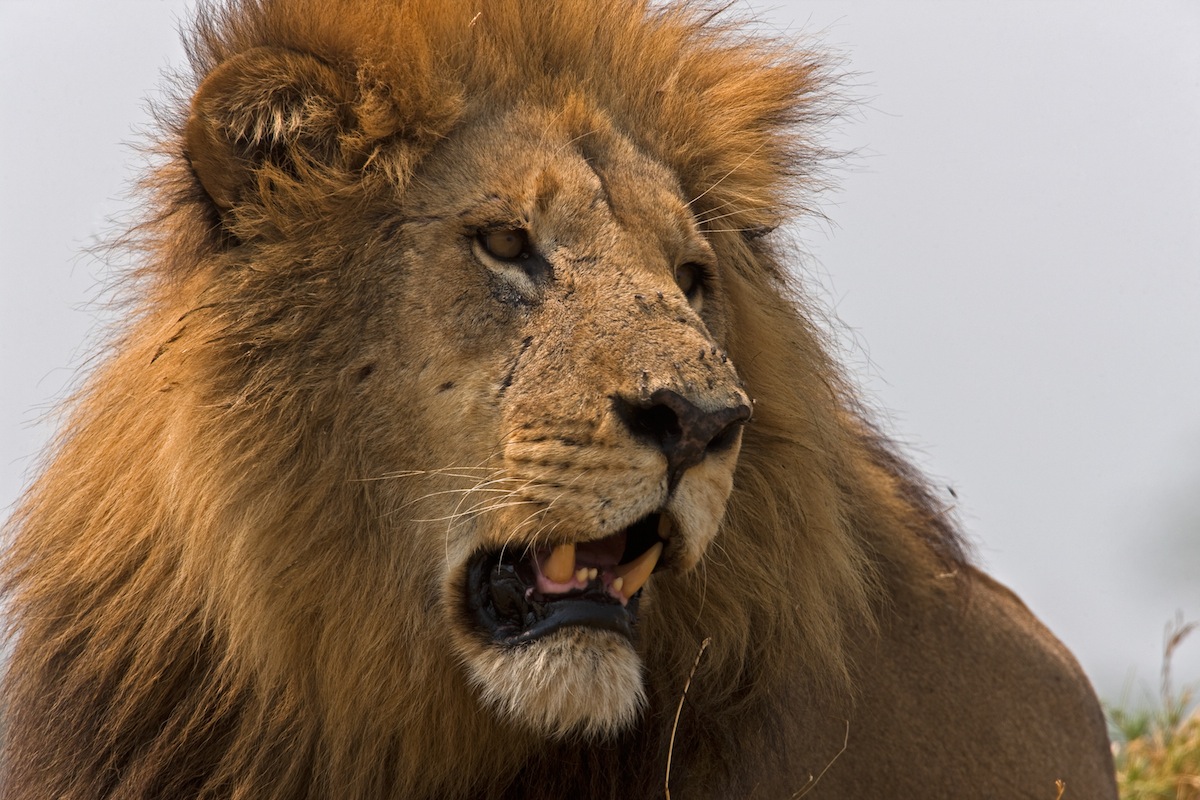
Only physically strong, intelligent and fit males survive to become adults in charge of a pride. Females generally live longer than their counterparts. Male lions, for all their hardships, are sought after by trophy hunters.
"Every now and then, a cub emerges as a battle-scared warrior, and then gets shot for the very qualities that have allowed him to be a survivor," Dereck said.
In decline
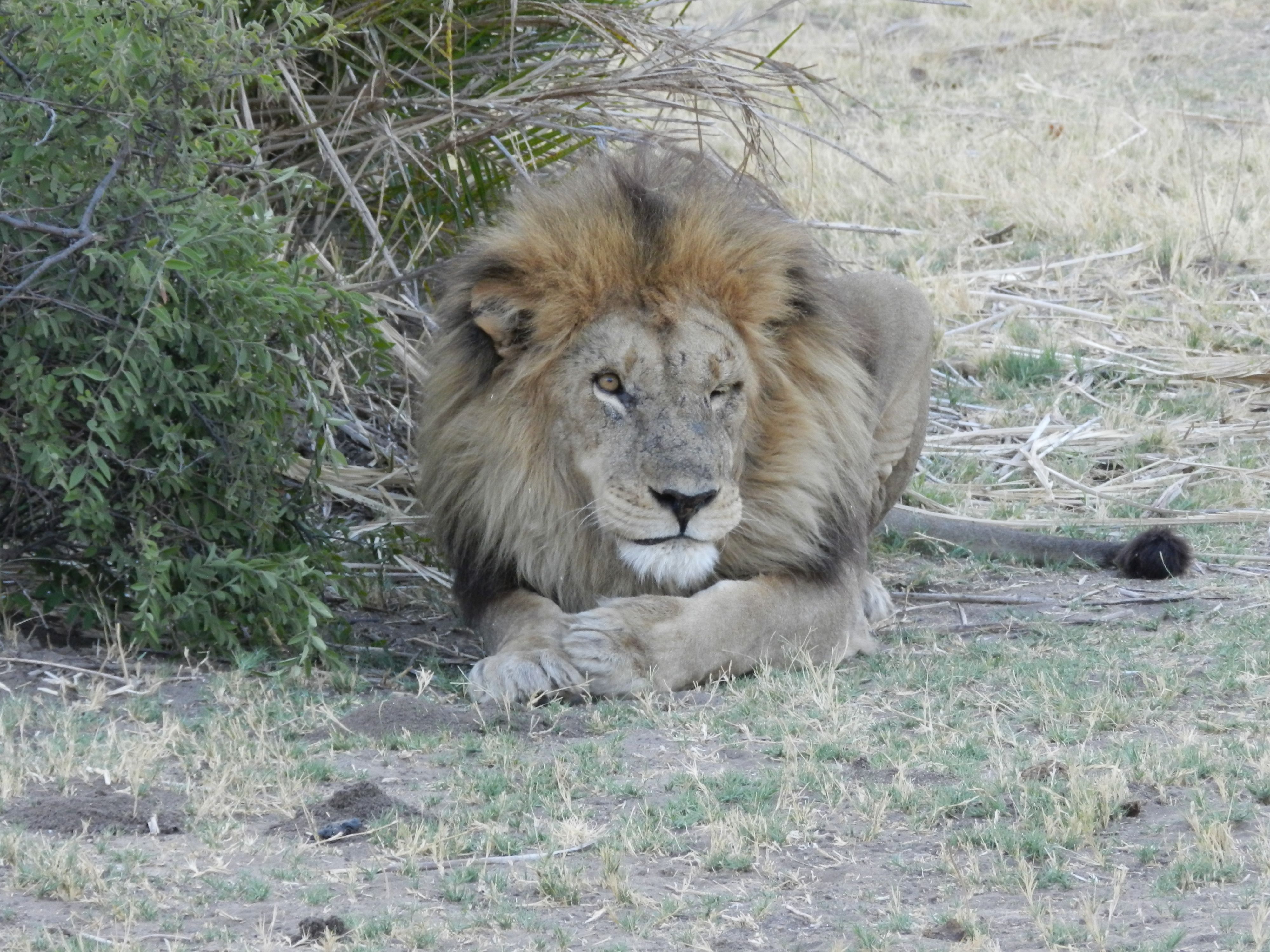
There are only about 20,000 lions left in Africa, Beverly said. Other estimates put the number slightly higher, closer to 30,000. Regardless, their numbers are declining at an alarming rate, experts agree. About 50 years ago, there were 450,000 lions — a decline of more than 95 percent, Beverly added.
Poaching troubles
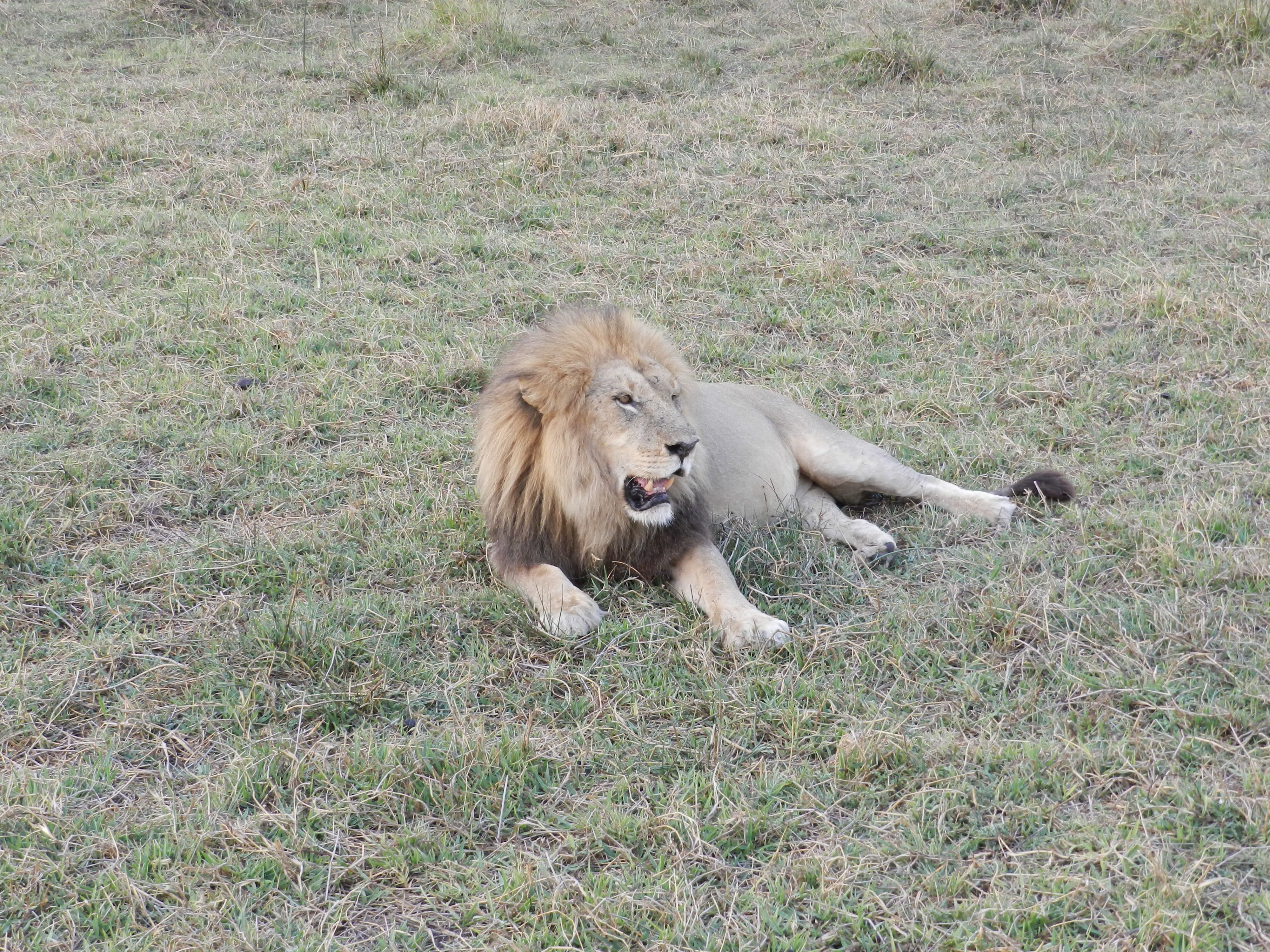
Trophy hunters, mostly Americans, kill nearly 700 lions per year, typically males, Dereck said. Perhaps an even bigger problem is the use of wire snare traps by expanding rural populations in Africa. These traps catch a variety of animals, which then die, attracting lions, which then fall prey to the traps themselves, he added.
Hanging out
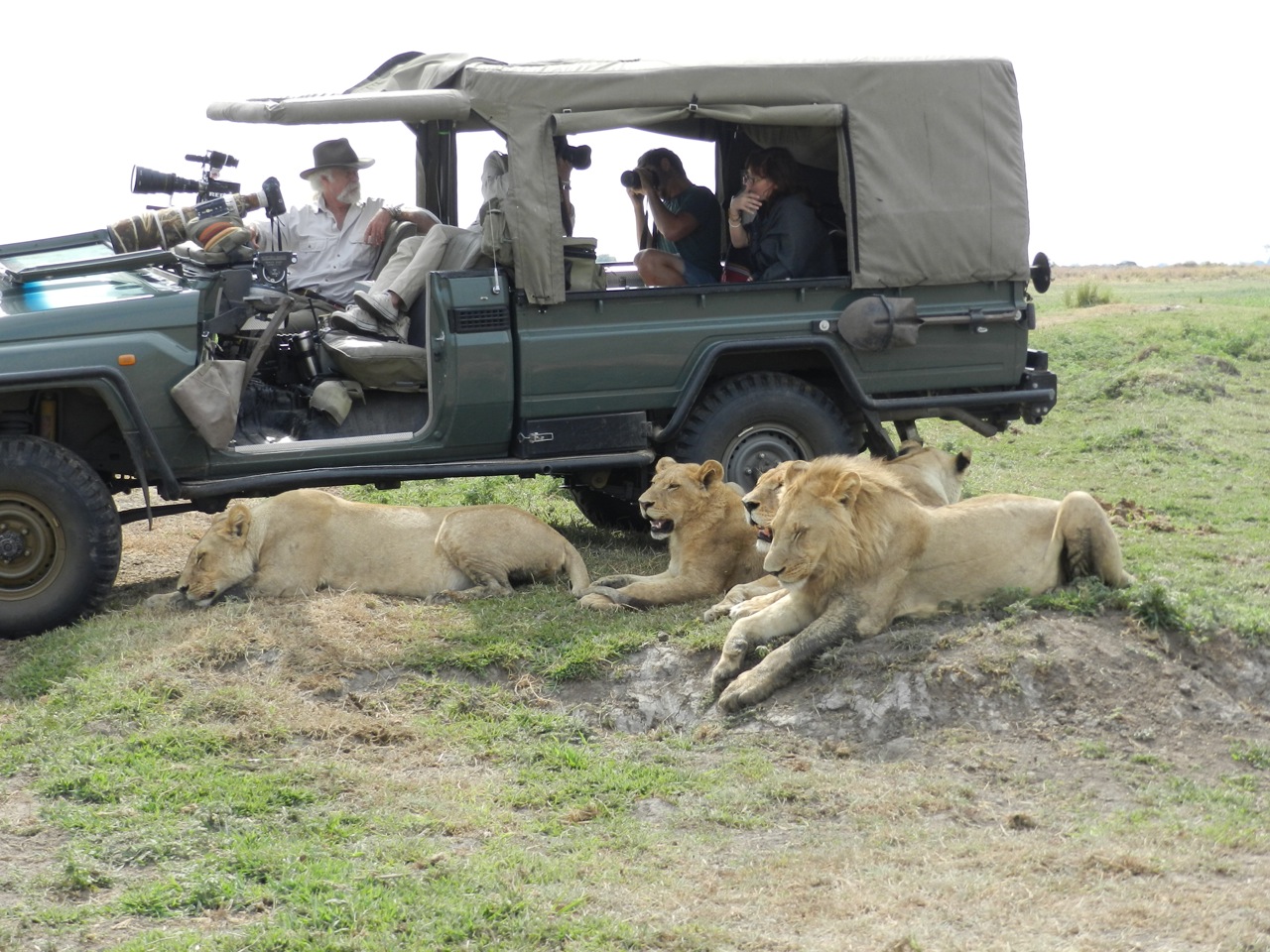
Here, lions took shelter in the shade created by the car, and on the left is Dereck Joubert. The Jouberts said they hope that the film will help people appreciate how difficult it is for male lions to survive to adulthood, and in turn discourage hunting of these animals.
Viewing the animals up close shows just how easy it is to approach them, and makes it clear that lion hunting wouldn't be particularly challenging.
Taking a leap
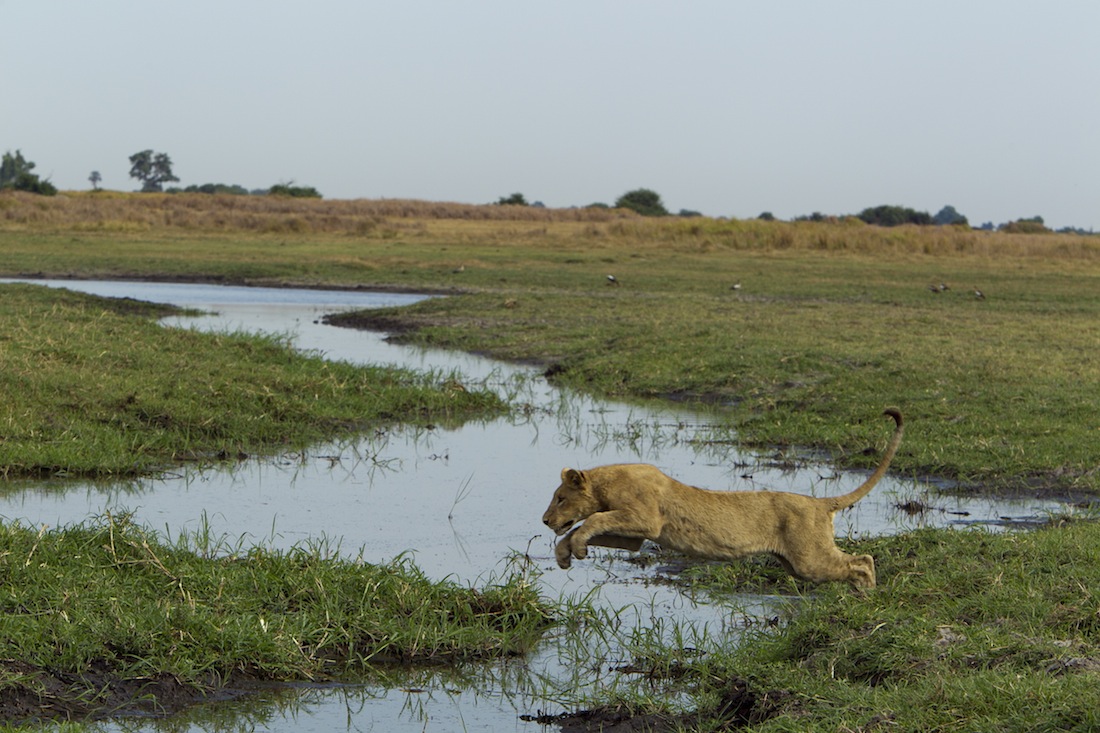
Here a female can be seen hopping across a stream. The killing of an adult male in a pride can throw the group into chaos, Dereck said. For example, this makes the pride more vulnerable to attack from an outside group of males, leading to upheaval and the almost certain killing of any young cubs, Dereck said.
When male lions take over a new territory, they almost always kill the prides' cubs, since they are not biologically related and do not want to spend energy ensuring that other lions' genes will be passed on.










